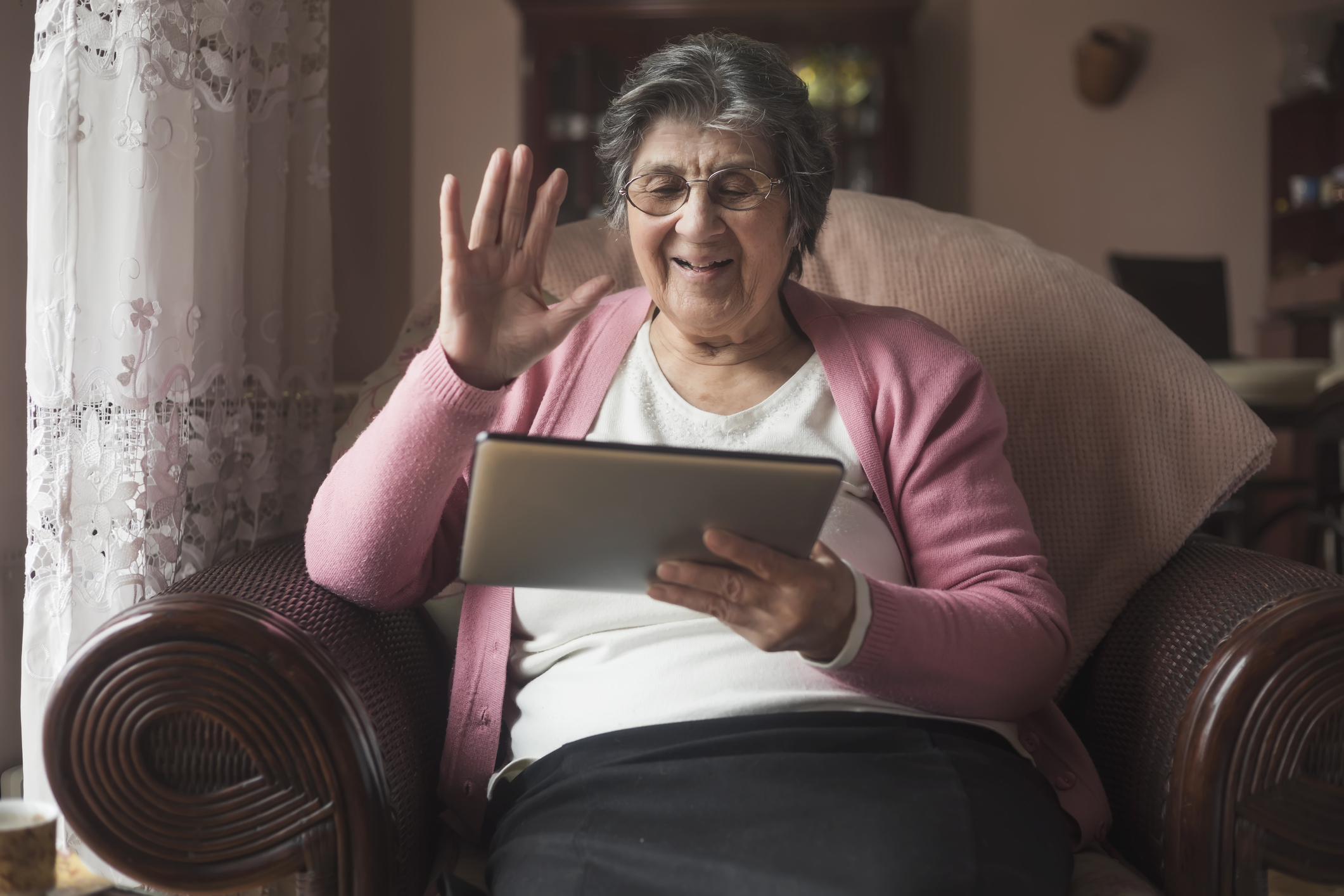Staying Connected with Seniors During Self-Isolation
| COVID-19

In response to the COVID-19 pandemic, more and more Canadians are self-isolating and practising social distancing, in an effort to slow the spread of the coronavirus and avoid jeopardizing our most vulnerable citizens: seniors and people who have a compromised immune system or an underlying medical condition.
As the Canadian government explains, COVID-19 spreads from an infected person in three ways:
- Respiratory droplets generated when you cough or sneeze
- Close, prolonged personal contact, such as touching or shaking hands
- Touching something with the virus on it, then touching your mouth, nose or eyes before washing your hands
Self-isolation means to stay at home, avoid contact with other people, and monitor yourself for symptoms. People who have travelled outside of Canada, or who have had close contact with someone who has been diagnosed with COVID-19, are advised to self-isolate for 14 days.
Social distancing means avoiding any non-essential gatherings, such as parties and coffee dates; avoiding physical contact, such as handshakes; avoiding crowded public spaces; limiting contact with people at higher risk; and staying at least two metres away from other people.
Safe ways to stay in touch
Self-isolation and social distancing are necessary measures to help contain the spread of COVID-19 and protect vulnerable people. Medical experts are very clear about what’s at stake: older adults are at the greatest risk of severe illness from COVID-19, and family members should avoid exposing their loved ones to the virus.
However, being separated from family and friends can be very stressful – after all, humans are social creatures, and we depend on our relationships and social networks for support, friendship, and fulfillment. Loneliness among seniors is also a serious concern.
To stay connected while social distancing, many people are finding alternatives to in-person visits. Here are nine ideas to try:
- Regular phone calls. For many seniors, this is the easiest way to stay in touch with friends and family.
- Texting and more. For seniors who are comfortable using technology, you can also connect with text messages, emails, video chat, and social media.
- Hold a virtual dinner party. Everyone prepares their meal at home and joins a video chat (Google Hangouts, FaceTime or Skype, for example) at an agreed-upon time. This could also work for lunches and coffee dates. The nice thing about video chat is that you can see each other’s facial expressions and body language.
- Email and blog updates. To keep senior loved ones in the loop about what you and your kids are up to, create a short e-newsletter with photos and text, and send it out every few days. A family blog is also a good way to share updates, and visitors can add comments.
- Read bedtime stories together. If your senior loved one can use video chat, see if they’d like to read aloud to their grandkids in the evening. If using the phone is easier, try using speakerphone.
- Get crafty. Invite the kids to create digital greeting cards, photos and artwork to email to their grandparents.
- Play online games. If your senior loved one has internet access, try playing a game online. You’ll find free versions of classics like card games, chess and backgammon, or newer multiplayer games that kids will also enjoy.
- Watch a movie together. Netflix Party allows people in different places to watch a movie or TV show together, if they all subscribe to Netflix. Pick a kids’ movie and laugh at the hijinks together! (Netflix Party is only available for Chrome browsers.)
- Arrange home care services. If you live far away from your loved one and are concerned about their well-being, consider hiring a professional caregiver. Home care services include companionship, housekeeping, meal preparation and more.
Missing our loved ones is emotionally difficult, but remember that self-isolation and social distancing are acts of love and care. Taking advantage of different ways to connect can help us feel closer and support each other.
Bayshore Home Health offers a wide range of home care services to help Canadians live independently for as long as possible. Contact us at 1-877-289-3997 for details.
